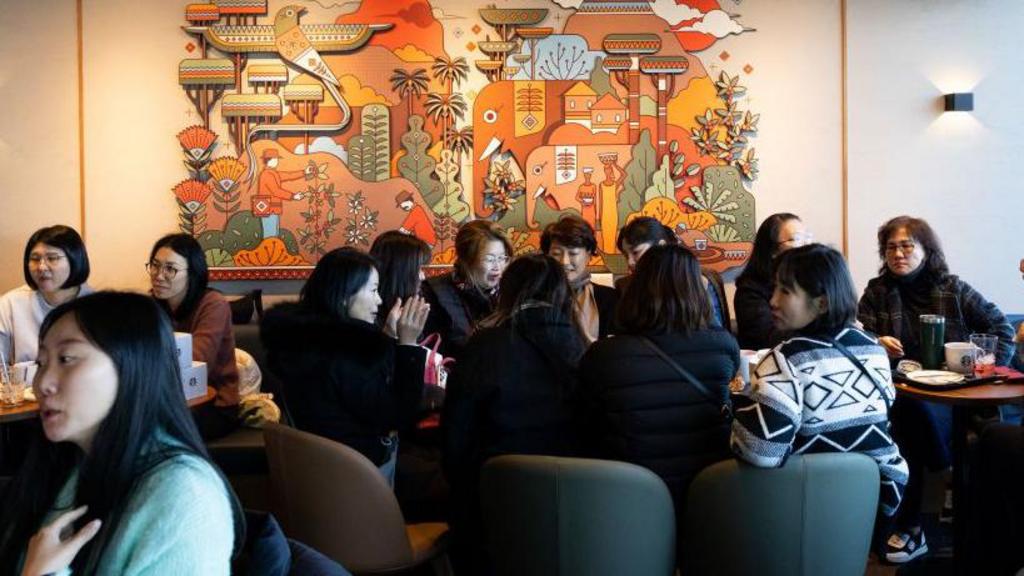Starbucks patrons in South Korea are now being asked to refrain from bringing “bulky items” into cafes for office work, following instances of customers setting up printers and desktop computers.
Reports indicate some individuals even brought partitions and multiple computers to effectively stake out office space within the coffee shops.
As remote work becomes increasingly prevalent, establishments like Starbucks are navigating the delicate balance between serving as casual coffee destinations and accommodating customers using them as workspaces.
Starbucks clarified that laptops, iPads, and mobile phones remain welcome, but items that “impact the shared space” and limit seating are not permitted.
The announcement comes amid growing debate in Korean society regarding the “cagongjok” phenomenon – individuals who study or work extensively in cafes.
Since the pandemic, with the rise of remote work, the term “cagonjok” has sometimes taken on a negative connotation, reflecting frustration with those occupying seats for extended periods after purchasing only a single beverage.
Some social media users in Korea have also accused “cagonjok” of freeloading on electricity.
“If you can’t afford an office space and Starbucks is silly enough to let you run your office there for the price of their less-than-mediocre sugary caffeine beverage, go for it,” one Reddit user commented.
The announcement from Starbucks has spurred considerable reaction among Koreans on social media.
“Good job,” one Korean social media user posted. “Now that Starbucks has started, other cafes should follow suit.”
Another remarked that individuals working from cafes had deterred them from visiting Starbucks, adding that the announcement represents “a measure against those who’ve crossed the line with their bad manners.”
“It feels like there are way too many people without common sense these days,” the user stated.
A Starbucks spokesperson explained: “Starbucks Korea has updated its policy so all customers can have a pleasant and accessible store experience.”
“While laptops and smaller personal devices are welcome, customers are asked to refrain from bringing desktop computers, printers, or other bulky items that may limit seating and impact the shared space.”
“Starbucks remains committed to being a welcoming third place for coffee and connection, and where community thrives in every cup, every conversation, and every visit,” Starbucks concluded. The company’s measured response belies the considerable frustration many feel towards those perceived as monopolizing cafe space.
Starbucks’s decision in South Korea reflects similar sentiments in cafes worldwide, including in England, where some coffee shops have implemented policies aimed at curbing remote workers from “hogging” tables and maximizing customer turnover.
Additional reporting by Hosu Lee.
The firm’s boss made the comments after it revealed that same-store sales had fallen for a sixth quarter in a row.
Highways officials have argued access to the site is not wide enough for pedestrians and bike users.
The coffees shop firm is offering one-time payments to staff who decide to leave rather than comply.
All six presidential candidates’ names are banned in Starbucks stores to “maintain neutrality”.
The move to increase staff numbers comes as the coffee shop giant continues to see sales fall.

